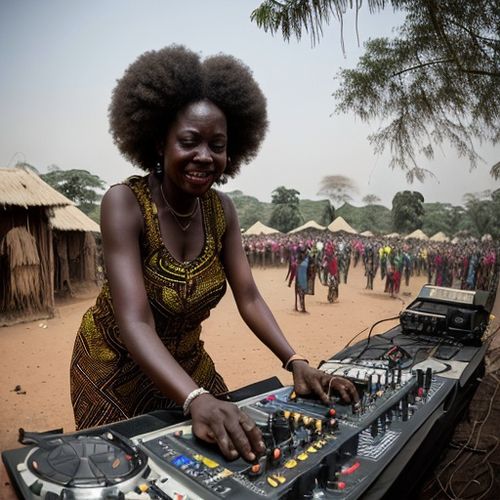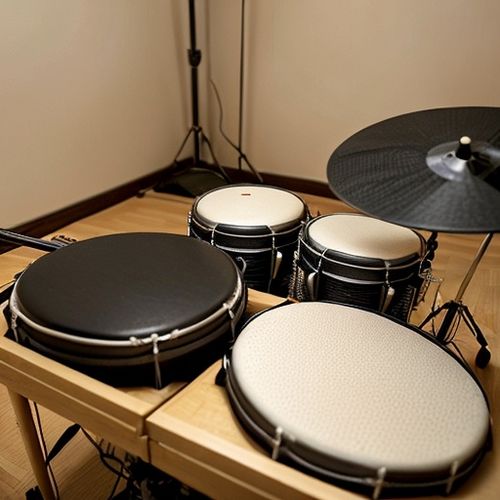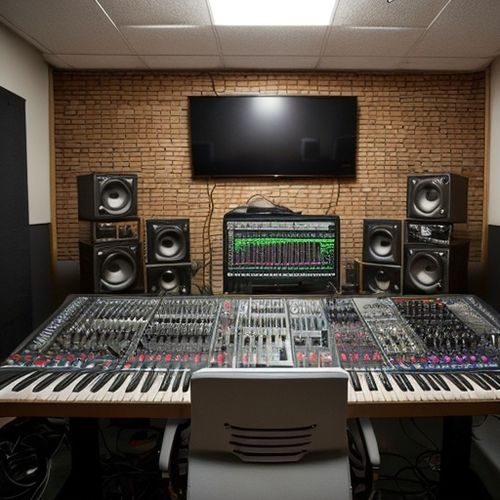The sun had barely crested over the acacia trees when the first bass frequencies began pulsing through the dust at the Nyege Nyege Festival in Uganda. But something was different this year. Behind the decks, veteran Kampala selector Kampire wasn’t just riding the rhythm – she was harnessing it, quite literally, from the blazing equatorial sun. The solar-powered DJ setup she pioneered during this year’s festival represents far more than technical novelty; it’s rewriting the rules of how music thrives in off-grid communities across Africa.
For decades, Africa’s vibrant festival scene has danced to an unsustainable beat. Diesel generators, their constant thrum barely noticed beneath kwaito beats or afrobeats drops, have been the unspoken backbone of every open-air celebration from Lagos to Lilongwe. The environmental cost was staggering – a single three-day festival might burn through thousands of liters of fuel. More painfully, the financial burden put grassroots events at the mercy of volatile fuel prices, with some organizers watching profits literally go up in smoke.
Enter the Solar Sound Project, a collaboration between Ugandan audio engineers and German renewable energy specialists. Their prototype rig – two 400W photovoltaic panels feeding a bank of lithium batteries connected to industry-standard CDJs and a mixer – underwent its baptism by fire during Kampire’s sunset-to-midnight set. "At first I kept glancing at the power meters like a mother checking her newborn," laughed the DJ afterward. "But by the third hour, when the panels were just moonlit rectangles and we were still going strong, I forgot we weren’t plugged into some imaginary grid."
The technical specifications tell only half the story. Unlike clunky solar solutions of the past that compromised on sound quality, this system delivers clean, consistent power that meets the exacting standards of professional audio equipment. More crucially, its modular design allows scaling from intimate bush parties to mainstage extravaganzas. Tanzanian sound system veteran Babu tested a larger configuration at Mozambique’s Azgo Festival: "We ran six speaker stacks for 14 hours straight. Normally that’s two generator refills and about $800 in diesel. This time? Just sunshine and basslines."
Beyond the obvious environmental benefits, the cultural implications run deep. Festival organizers across the continent report a 30-60% reduction in operational costs when eliminating generator hire and fuel. For rural events like Mali’s Festival au Désert, this could mean survival in an era of shrinking arts funding. Meanwhile, urban festivals are discovering unexpected perks – no more "generator zones" cordoning off prime dancing real estate, and the ability to stage pop-up performances literally anywhere the sun shines.
Not that the transition has been without challenges. Dust accumulation on panels during harmattan season requires diligent cleaning, while the initial investment – though recouped within 2-3 events – remains prohibitive for some. Perhaps the most surprising obstacle has been psychological. "We had to convince older sound engineers that solar doesn’t mean ‘weak’ or ‘unreliable’," noted Solar Sound’s technical lead. "Now they’re the ones demanding we add more panels so they can run laser shows."
As word spreads, inquiries are flooding in from unexpected quarters. South African church groups want solar-powered PA systems for outdoor revivals. Kenyan political campaigns seek mobile units for rally speeches. Even wildlife conservancies have expressed interest in using the silent systems to avoid disturbing animals during eco-tourism events. The technology’s adaptability speaks to a broader truth: Africa’s renewable energy revolution won’t be led by Western-style megaprojects, but by decentralized innovations that solve very local problems.
Back at Nyege Nyege, the real test came unexpectedly when a regional blackout hit surrounding towns on the festival’s final night. As streetlights winked out across Jinja district, the solar stage became a beacon – both literally and metaphorically – with its pulsating lights drawing crowds away from darkened competitor venues. In that moment, beneath Uganda’s star-flecked sky, the future of African entertainment revealed itself: not as a rejection of modern technology, but as its reinvention on African terms. The generators may finally have met their match – not in austerity, but in abundance of the one resource Africa will never lack: radiant, unstoppable light.

By John Smith/Apr 14, 2025

By Samuel Cooper/Apr 14, 2025

By George Bailey/Apr 14, 2025

By Natalie Campbell/Apr 14, 2025

By Eric Ward/Apr 14, 2025

By Olivia Reed/Apr 14, 2025

By Benjamin Evans/Apr 14, 2025

By James Moore/Apr 14, 2025

By Laura Wilson/Apr 14, 2025

By Benjamin Evans/Apr 14, 2025

By Thomas Roberts/Apr 14, 2025

By Sarah Davis/Apr 14, 2025

By Rebecca Stewart/Apr 14, 2025

By Rebecca Stewart/Apr 14, 2025

By Eric Ward/Apr 14, 2025

By Michael Brown/Apr 14, 2025

By Noah Bell/Apr 14, 2025

By Olivia Reed/Apr 14, 2025

By Rebecca Stewart/Apr 14, 2025

By Sarah Davis/Apr 14, 2025